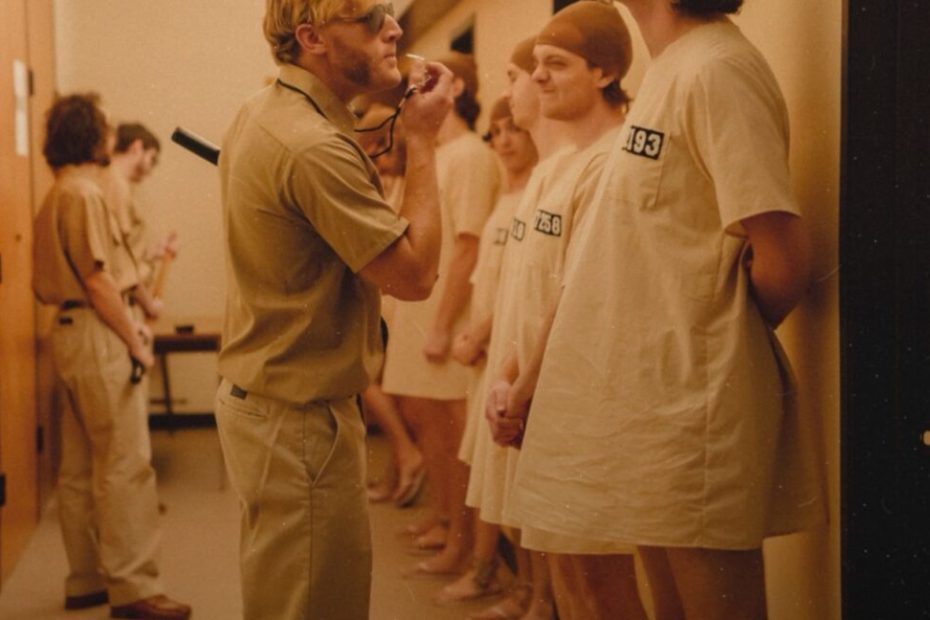Ramsay's experience as a prisoner was a little different. “I honestly don't think any of the prisoners were aware of the camera,” he told Ars. “We weren't quite sure where it was, we thought we saw it sometimes. But we weren't given regular instructions, we were poorly fed, poorly clothed, and so on. What the camera angle is in such a situation is the least of your to assure.”
In retrospect, the Stanford Prison Experiment may have more in common with reality TV; the industry term has evolved into 'unscripted' TV due to the myriad ways the final product is manipulated and shaped during filming. Zimbardo even admits this in the documentary, calling his experiment “the first-ever reality TV show.”
Controlling the story
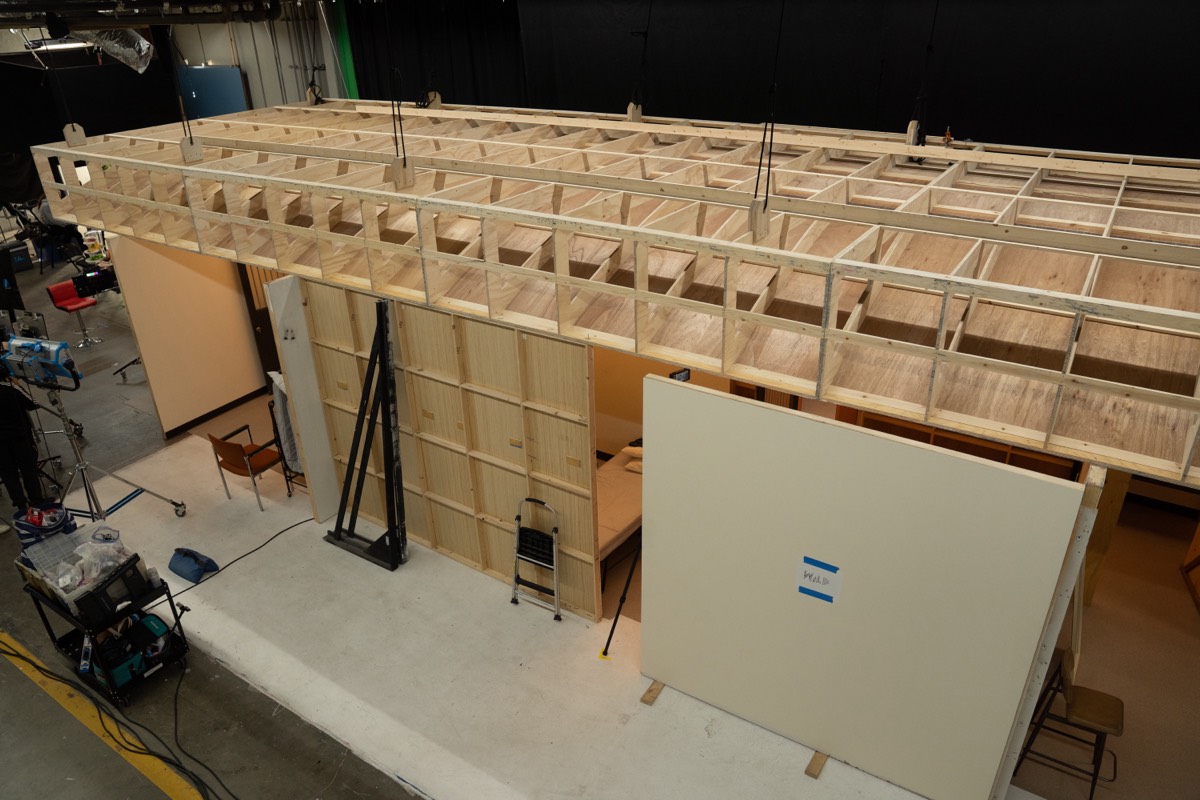
The re-creation takes place in Los Angeles.
National Geographic/Katrina Marcinowski
The re-creation takes place in Los Angeles.
National Geographic/Katrina Marcinowski
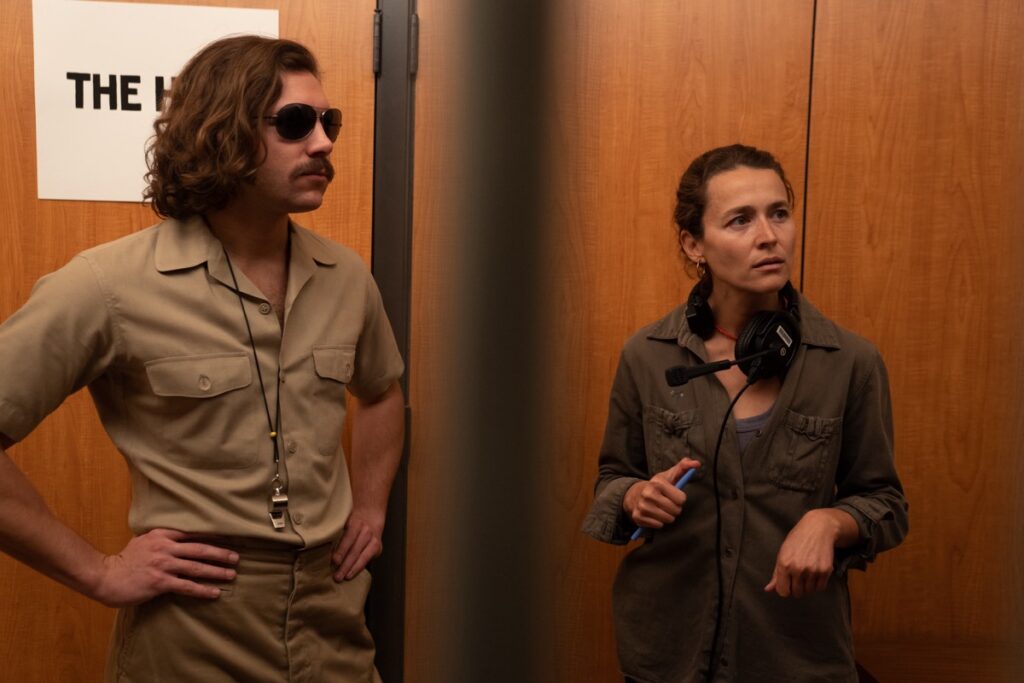
A re-creation guard on set with director Juliette Eisner.
National Geographic/Katrina Marcinowski
A re-creation guard on set with director Juliette Eisner.
National Geographic/Katrina Marcinowski
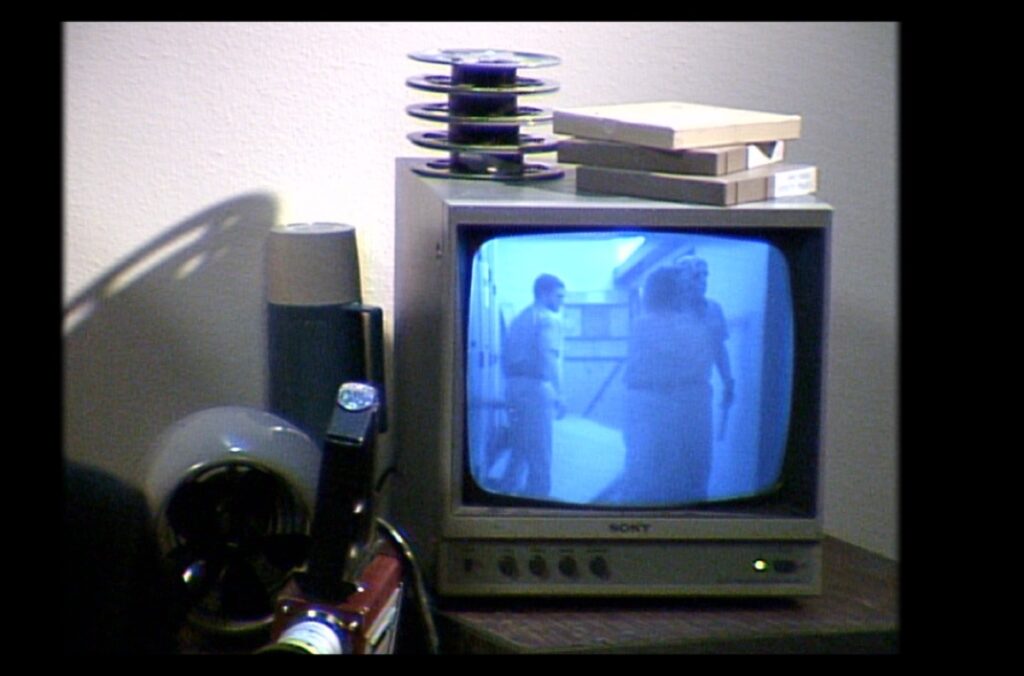
A prop TV shows scenes from the recreation set hallway.
National Geographic/Daniel Hollis
A prop TV shows scenes from the recreation set hallway.
National Geographic/Daniel Hollis
A re-creation guard on set with director Juliette Eisner.
National Geographic/Katrina Marcinowski
A prop TV shows scenes from the recreation set hallway.
National Geographic/Daniel Hollis
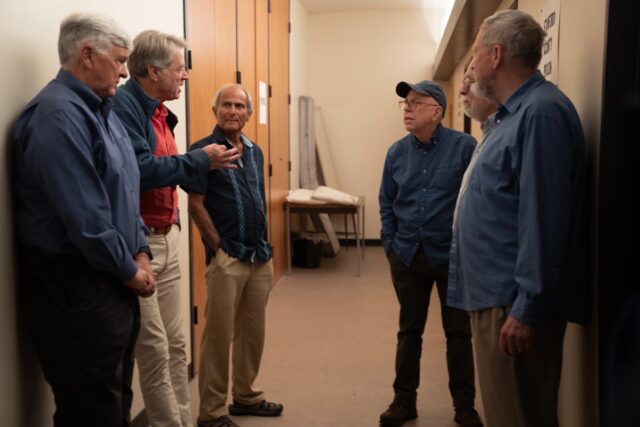
Original participants Karl Van Orsdol, Dave Eshleman, Chuck Burton, Doug Korpi, Jerry Shue and Clay Ramsay at the Los Angeles re-creation
National Geographic/Katrina Marcinowski
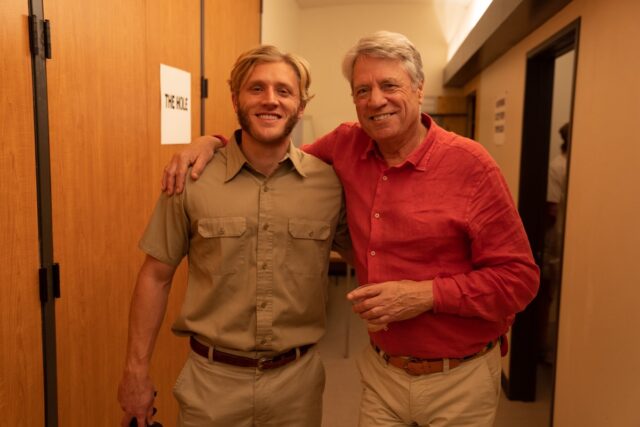
Dave Eshleman (right) and his re-creation double on set in Los Angeles.
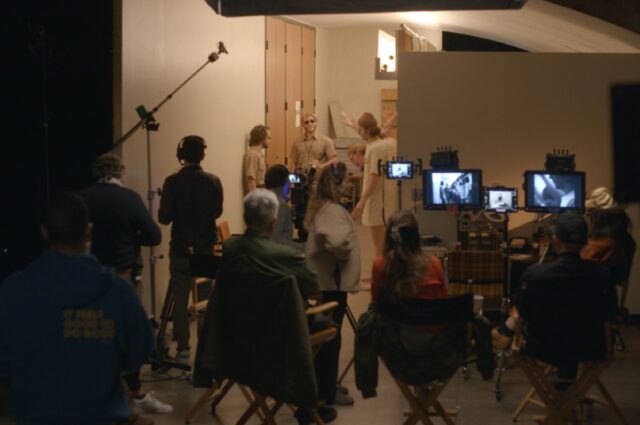
A look behind the scenes at the reconstruction set.
National Geographic/Daniel Hollis
Zimbardo's version of events has long dominated the prevailing understanding of the Stanford Prison Experiment, even though some of the original participants have often tried to refute that story; their voices have never had so much influence. Although Eshleman participated in many media interviews over the ensuing decades, he said much of his commentary was often left out in favor of Zimbardo's favorite story.
For his part, Zimbardo has repeatedly said that Korpi, for example, lied about faking his breakdown, pointing to the fact that Korpi became a prison psychologist because of the deep impact the experiment had on him. Zimbardo also denies in the NatGeo documentary that Eshleman was acting during the experiment; his interpretation is that in this way Eshleman rationalized his behavior and dealt with the blame.
“I think I knew whether I was acting or not,” Eshleman countered. “How could he not even consider the possibility that not only I, but everyone in his little demonstration was acting, that we simply fell into the roles that were expected of us, and that we were paid fifteen dollars a day? That's what irritates me. He's a little decided to throw us [the guards] under the bus after he told us to do what he wanted. Maybe he never took acting classes. Those who work in the theater department always act in one way or another.” In fact, the basic scenario of the Stanford Prison Experiment has found its way into many improv classes as a practice assignment.
